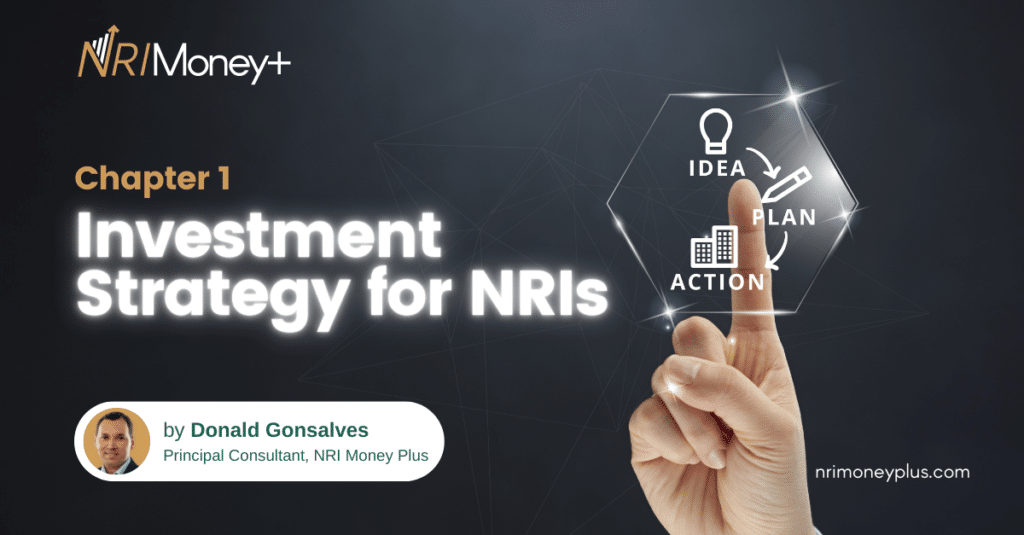Welcome to NRI Money Clinic, a dedicated platform where we discuss various investment cases and provide tailored strategies for Non-Resident Indians (NRIs). In this chapter, we will explore a case study of an NRI residing in London who is approaching his retirement age. He plans to visit India after retirement to assist his elderly father with property matters.
Additionally, he aims to invest approximately GBP 60,000, with a portion of the returns to be used for his daughter’s wedding in 5 to 6 years, and the remainder to be utilized in India after 10 to 12 years. Let’s dive into the available investment options to help this individual achieve his financial goals.
NRI Money Clinic Case Study: NRI Residing in London
Mr. Gupta, a diligent NRI residing in London, is eagerly anticipating his retirement. With his elder daughter’s wedding on the horizon, he desires to allocate a portion of his savings for this significant milestone. Moreover, being aware of his responsibility towards his ageing father and property matters in India, Mr. Gupta plans to invest GBP 60,000 to secure his financial future and contribute to his father’s well-being.
NRI Money Clinic Investment Strategy #1:
1. Structured Products or High-Yield Corporate Bonds (GBP 25,000):
To manage risk while aiming for attractive returns within a 5 to 6-year timeframe, NRI Money Clinic suggests allocating GBP 25,000 to structured products or high-yield corporate bonds. These instruments offer relatively stable returns with reduced risk compared to direct equity investments.
Structured products provide an opportunity to participate in the market’s upside while offering downside protection, making them an ideal choice for risk-conscious investors like Mr. Gupta. High-yield corporate bonds, on the other hand, involve investing in bonds issued by companies with a higher credit risk profile but offer correspondingly higher returns. Structured products requires a NRE account as well as a Demat account to make this investment.
By diversifying a portion of his investment into these instruments, Mr. Gupta can potentially achieve consistent growth while safeguarding his capital.
In this case, he has the option of investing in equity in India through the use of Structure Products, which will keep him investing risk-free. This will allow him to grow his investment with Nifty 50 returns. But in case of the fall of the market, his principal will be protected and a minimum return of 6% p.a., which will be guaranteed. For more information about the structured product can be found on https://nrimoneyplus.com/edelweiss-twin-win-structured-product-review/
The investment period is 42 months. Amount after the end of the period can be reinvested in a Yield Fund for a short period like 18 to 24 months giving 9 to 9.5% annual returns.
Total investment period – 5 to 5.5 years.
- NRE as well as Demat account require to invest
2. Annuity Single-Life Plan (GBP 35,000):
To ensure a regular income stream during retirement and beyond, NRI Money Clinic recommends considering an annuity plan. An annuity plan enables Mr. Gupta to convert a lump sum investment into a series of regular payments, providing financial stability well into the future. This plan can be structured to pay him annually until the age of 100, thus securing a long-term income source for him and offering peace of mind.
By investing the remaining GBP in an annuity plan, Mr. Gupta can achieve a reliable income stream, which he can utilize for his own needs and extend support to his father in India. Moreover, he can make the investment directly from his UK account in GBP. The payout can be received to his UK account and if desired, he can take the payouts at a NRE account in India.
The Annuity Single-Life Plan requires a single payment in GBP from UK account with a deferment of 10 years. From 11th year fixed payment a fixed amount every year for next 36 years will be credited in GBP to either the UK account of a NRE account in India. He can withdraw the amount here in India or send them to any foreign account in GBP as needed. A complimentary insurance cover will also be provided and paid to the nominees upon death of the investor, which helps in creating a legacy wealth. He also has the option of terminating the plan and withdrawing a lumpsum amount, if needed.
- Investment can be made in GBP from an UK bank account
- NRE account not required at the time of investment
- NRE account needs to be provided before the payout begin, i.e. before the end of the 10th year.
Issues with Investment Strategy #1:
Mr. Gupta doesn’t have both the NRE account as well as the Demat account. That is the biggest issue Mr Gupta has while making an investment in structured products. So that takes us to propose few more strategies without the need of NRE account and Demat account.
NRI Money Clinic Investment Strategy #2:
1. GBP 25,000 invested in Unit-Linked Investment Plan
- Period of Investment – 5 years (GBP 5000 per year)
- Plan term – Up to 20 years.
- Withdraw funds completely or partially any time between the 6th to 20th year.
- Investment can be made in GBP from a UK bank account
- Payouts will be made to a UK bank account (unless you need the payouts in an NRE account, which should be provided before the end of 5th year)
Read about How ULIPs Scores Over Mutual Funds
2. GBP 35,000 invested in a Guaranteed Annuity Plan (joint life-long)
- Payout starts after 10 years.
- Single payment in GBP from a UK account with a deferment of 10 years.
- From the 11th year, a fixed payment amount every year for the next 36 years will be credited in GBP either to his bank account in the UK or his NRE account in India (NRE account needs to be provided before the payout begins, i.e. before the end of the 10th year)
- Payout will continue to the Second Annuitant on the death of the First Annuitant
- An insurance cover
* We would like to clarify an important point related to the joint plan. If the first annuitant passes away within the ‘deferment period’, the insurance payout will be paid to the nominee(s) and the policy will end. After the yearly payment begins, the insurance payout will be made to the nominee(s) on the death of both annuitants.
Pros with Investment Strategy #1:
Mr. Gupta doesn’t need have an NRE account or a Demat account to make any investment with investment strategy #2. Moreover, he has the flexibility to receive the payout/maturity amount in GBP either to his UK bank account or an NRE bank account in India.
Do you need advice on investing your money. Get in touch with NRI Money Plus for a free online consultation.

Donald G. is the Principal Consultant at NRI Money+. He specialises in creating personalised financial plans for NRIs (Non-Resident Indians) and HNI (High Net-worth Individuals).



